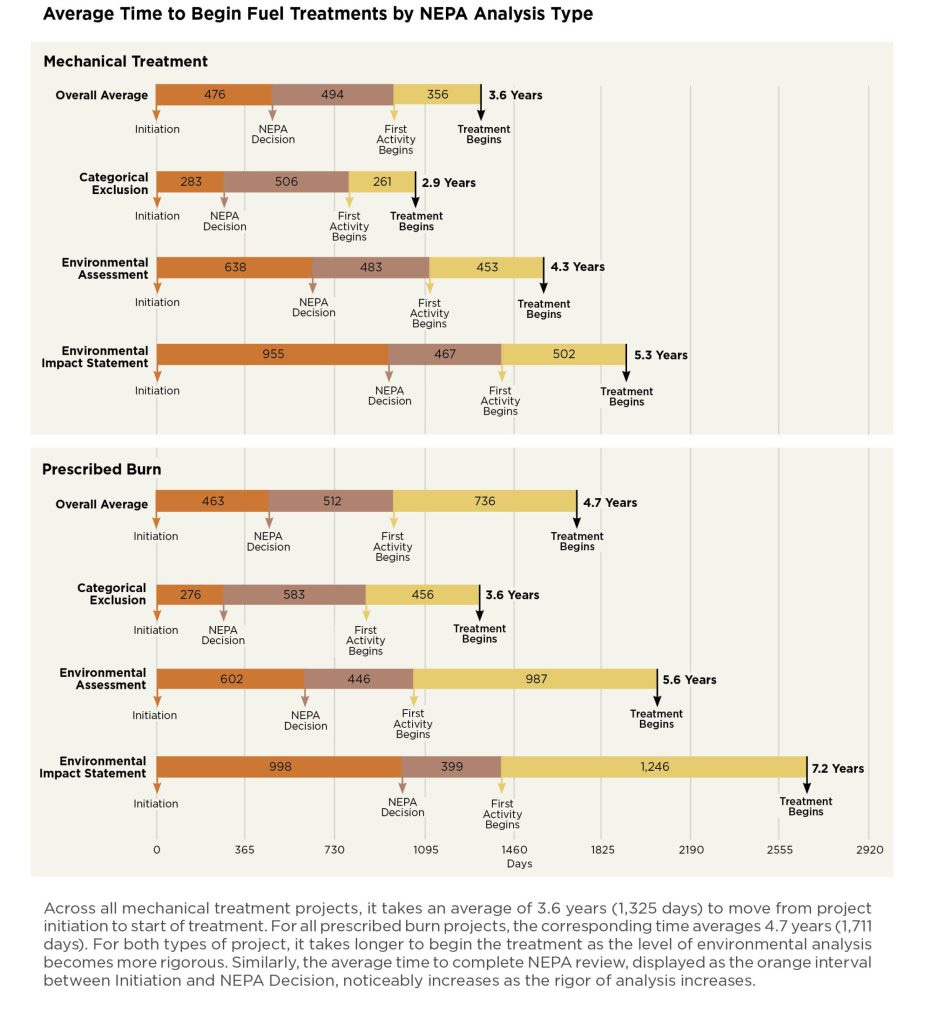Consider this a new category, the flash mini-post. In QTRS on Jan 9, I talked about adaptation to climate change as it relates to the LA wildfires. In the last few days, there have been plenty of articles about who is to blame. The left, as expected, is going to focus the blame on climate change with a narrative if there isn’t much we can do. The right seems to be focusing on DEI. In some sense, they are both right. Climate change is having an impact in the sense that it is increasing the chances of extreme events. And yes, we need competent people running things. On the other hand, humans have agency and can reduce risk, while some policies in place can’t be blamed on DEI. Let me give a constructed example.
Pre-climate change, we’ll assume the risk of a disasterous wildfire is 1 in 100. Think of this as the 100-year flood. With climate change, the chanced go up to say 1 in 10. Note that I’m making this up to illustrate a point. The forest service says they need to do a prescribed burn to remove fuel in the forest. Under the current policies, here is how long it will take to do the burn (6/14/2022):
Roughly speaking, a problem today of too much fuel in the forest takes 5 years to address. Under the 1 in 100 chance of a wildfire, there is a 1 - 0.99^5 = 5% chance of a wildfire happening in the next 5 years. Think of this as rolling a 100-sided die, and if you get a 1, that signifies a wildfire. On the other hand, in the 1 in 10 chance of a wildfire, there is a 1 - 0.9^5 = 41% of a wildfire. In the 1 in 10 scenario, taking 5 years to approve the burn is a risky move. One might even say it is playing with fire. By the way, for 7 years, the chances are 7% and 52%.
Part of adaptation is being able to make decisions more quickly. Here, the left needs to take some responsibility for the policies it has fought for that make it take so long to get something done. The right needs to wake up and accept climate change and help to deal with how society adapts.
There will be plenty of blame to go around for LA and other decisions that exasperated the situation in LA, but as the chances of extreme events go up, we as a society need to make decisions and take actions more quickly.
Please share and like
Sharing and liking posts attracts new readers and boosts algorithm performance. I appreciate everything you do to support Briefed by Data.
Comments
Please let me know if you believe I expressed something incorrectly or misinterpreted the data. I'd rather know the truth and understand the world than be correct. I welcome comments and disagreement. We should all be forced to express our opinions and change our minds, but we should also know how to respectfully disagree and move on. Send me article ideas, feedback, or other thoughts at briefedbydata@substack.com.
Bio
I am a tenured mathematics professor at Ithaca College (PhD Math: Stochastic Processes, MS Applied Statistics, MS Math, BS Math, BS Exercise Science), and I consider myself an accidental academic (opinions are my own). I'm a gardener, drummer, rower, runner, inline skater, 46er, and R user. I’ve written the textbooks “R for College Mathematics and Statistics” and “Applied Calculus with R.” I welcome any collaborations.






As I understand it, California’s insurance commission has prohibited insurers from using mathematics to estimate losses. What could possibly go wrong?